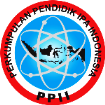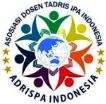Prospective Science Teachers’ Views on Socio-Scientific Issues: A Mathematical Modeling Study
Abstract
The rapid changes in the world and the difficulties in accessing accurate information increase the need for individuals to engage in analytical and mathematical thinking. Therefore, educational reforms are being implemented, offering various approaches, including mathematical modeling. Mathematical modeling, which enables individuals to evaluate real-life situations using mathematical expressions, has recently been extensively studied in mathematical education but not science education. In this research, the topic of genetically modified organisms, a socio-scientific issue as a real-life situation, has been addressed. Sixteen prospective science teachers from a state university in the Marmara Region of Turkiye participated in the study. The “Genetically Modified Product Production” model eliciting activity developed by researchers was used as the data collection tool. The modeling activity aims to determine the prospective science teachers’ levels of mathematical modeling and their views on the production of genetically modified products. The data obtained from the research were analyzed using descriptive analysis methods. As a result of the research, although the participants encountered this activity for the first time, they generally demonstrated modeling competencies at Levels 2 and 3 (sufficient and moderate) in their solutions to the modeling activity. Regarding the production of genetically modified products, participants mainly expressed opposing views, considering it a socio-scientific issue.
Keywords: socio-scientific issues, genetically modified organisms, mathematical modeling competencies
Full Text:
PDFReferences
Albayrak, H. B., & Tarım, K. (2022). Mathematical modelling competencies of pre-service primary school teachers: the time at school. Eğitimde Kuram ve Uygulama, 18(2), 95–112. https://doi.org/10.17244/eku.1163414
Bawa, A. S., & Anilakumar, K. R. (2013). Genetically modified foods: safety, risks and public concerns a review. Journal of food science and technology, 50(6), 1035-1046. https://doi.org/10.1007/s13197-012-0899-1
Bengtsson, M. (2016). How to plan and perform a qualitative study using content analysis. NursingPlus open, 2, 8-14. https://doi.org/10.1016/j.npls.2016.01.001
Blum, W. & Borromeo Ferri, R. (2009). Mathematical modelling: Can it be taught and learnt? Journal of Mathematical Modelling and Application, 1(1), 45-58.
Blum, W. (2015). Quality teaching of mathematical modelling: What do we know, what can we do? In S. J. Cho (Ed.), The Proceedings of the 12th International Congress on Mathematical Education – Intellectual and Attitudinal Challenges (pp. 73–96). Springer.
Borromeo Ferri, R. (2006). Theoretical and empirical differentiations of phases in the modelling process. ZDM, 38, 86-95. https://doi.org/10.1007/BF02655883
Craig, W., Tepfer, M., Degrassi, G., & Ripandelli, D. (2008). An overview of general features of risk assessments of genetically modified crops. Euphytica, 164(3), 853-880. https://doi.org/10.1007/s10681-007-9643-8
Deniz, D., & Yıldırım, B. (2018). Examination of the mathematical modelling skills of pre-service science teachers. Anemon Journal of Social Sciences of Mus Alparslan University, 6(STEMES’18), 87-93. https://doi.org/10.18506/anemon.463533
Dinç, R. (2020). A study on mathematical modeling competencies and epistemological beliefs of the 7th grade students. (Unpublished Master's thesis), Institute of Educational Science, Dicle University, Turkiye.
Dinçer, S. (2018). Content analysis in scientific research: Meta-analysis, meta-synthesis, and descriptive content analysis. Bartın University Journal of Faculty of Education, 7(1), 176-190. https://doi.org/10.14686/buefad.363159
Doerr, H. M., & English, L. D. (2003). A modeling perspective on students’ mathematical reasoning about data. Journal for Research in Mathematics Education, 34(2), 110–136. https://doi.org/10.2307/30034902
Doruk, B. K. (2010). The effects of mathematical modeling on transferring mathematics into daily life. (Unublished Doctoral Dissertation). Hacettepe Univeristy, Ankara, Turkiye.
Ergene, Ö. (2019). Investigation of pre-service mathematics teachers' understanding of definite integral through modelling by using riemann sums. (Unpublished Doctoral Dissertation). Marmara University, İstanbul, Turkiye.
Ergin, S. Ö., & Yaman, H. (2013). Genetically modified foods and their effects on human health. Gümüşhane University Journal of Health Sciences, 2(2), 261-274.
Fleming, R. (1986). Adolescent reasoning in socio-scientific issues, part I: Social cognition. Journal of Research in Science Teaching, 23(8), 677-687.
Fox, J. (2006). A justification for mathematical modelling experiences in the preparatory classroom. Identities cultures and learning spaces, 221-228.
Hıdıroğlu, Ç. N., Tekin Dede, A., Kula, S., & Bukova Güzel, E. (2014). Examining students’ solutions regarding the comet problem in the frame of mathematical modeling process. Mehmet Akif Ersoy University Journal of Education Faculty, 31(31), 1-17
Karahan, M. & Ergene, Ö. (2023). Investigation of pre-service mathematics teachers’ modeling processes in the context of crop insurance model-eliciting activity. Sakarya University Journal of Education Faculty, 23(1), 1-22. https://doi.org/10.53629/sakaefd.1271618
Kaynar, P. (2009). A general perspective on genetically modified organisms (GMOs). Turkish Bulletin of Hygiene and Experimental Biology, 66(4), 177-185.
Lesh, R., & Doerr, H. M. (2003). Foundations of a models and modelling perspective on mathematics teaching, learning and problem solving. R. Lesh and H. M. Doerr (Eds.), Beyond Constructivism: Models and Modelling Perspectives On Mathematics Problem Solving, Learning and Teaching (pp. 3-33). Lawrance Erlbaum Associates Publishers.
Lincoln, Y. S., & Guba, E. G. (1985). Naturalistic Inquiry. Sage Publications.
Marion, G., Renshaw, E., & Gibson, G. (2000). Stochastic modeling of environmental variation for biological populations. Theoretical Population Biology, 57(3), 197-217.
Mcmillan, J. H. (2000). Educational Research: Fundamentals for the consumer. Longman
Orhan, U. (2022). Examining socioscientific reasoning of science, social and classrom teachers. Master thesis, Düzce University, Turkiye.
Patronis, T., Potari, D., & Spiliotopoulou, V. (1999). Students’ argumentation in decisionmaking on a socio-scientific issue: Implications for teaching. International Journal of Science Education, 21(7), 745-754. https://doi.org/10.1080/095006999290408
Patton, M. Q. (1987). How to use qualitative methods in evaluation. Sage Publications.
Sandalcı, Y. (2013). The impact of teaching algebra through mathematical modeling on 6-grade students' academic success and how they correlate mathematics with daily life. Master thesis, Recep Tayyip Erdoğan University, Rize, Turkiye.
Tekin Dede, A., & Bukova Güzel, E. (2014). Model eliciting activities: the theoretical structure and its example. Ondokuz Mayis University Journal of Education Faculty, 33(1), 95-111.
Uzogara SG (2000). The impact of genetic modification of human foods In the 21st Century. Rev. Biotechnol. Adv. 18: 179-206.
Uzun, H., Ergene, Ö., & Masal, E. (2023). Investigation of mathematical modelling processes of fifth grade students: We are going to the Mathematics Village model-eliciting activity. Kocaeli University Journal of Education, 6(2), 494-521. https://doi.org/10.33400/kuje.1316782
Vitoria, L., Ramli, M., Johar, R., & Mawarpury, M. (2021, May). A review of mathematical modelling in educational research in Indonesia. In Journal of Physics: Conference Series (Vol. 1882, No. 1, p. 012145). IOP Publishing.
Yin, R. K. (2018). Case study research and applications. Design and methods, Sage Publications.
Zeidler, D. L., Walker, K. A., Ackett, W. A., & Simmons, M. L. (2002). Tangled up in views: Beliefs in the nature of science and responses to socio-scientific dilemmas. Science Education, 86(3), 343-367.
DOI: http://dx.doi.org/10.24014/jnsi.v6i2.28069
Refbacks
- There are currently no refbacks.

Journal of Natural Science and Integration
E-ISSN: 2620-5092 P-ISSN: 2620-4967
Published By:
Department of Science Education, Faculty of Education and Teacher Training,
State Islamic University of Sultan Syarif Kasim Riau, Indonesia
Mailing Address:
Jl. H.R Soebrantas Km. 15 No. 155
Kelurahan Simpang Baru
Kecamatan Tuah Madani, Pekanbaru, Riau, Indonesia
Email: jnsi.tadrisipa@uin-suska.ac.id
Indexed By:
Journal of Natural Science and Integration is licensed under a Creative Commons Attribution 4.0 International License.


_-_Copyy2.png)






.jpg)
.png)
.jpg)
.jpg)




